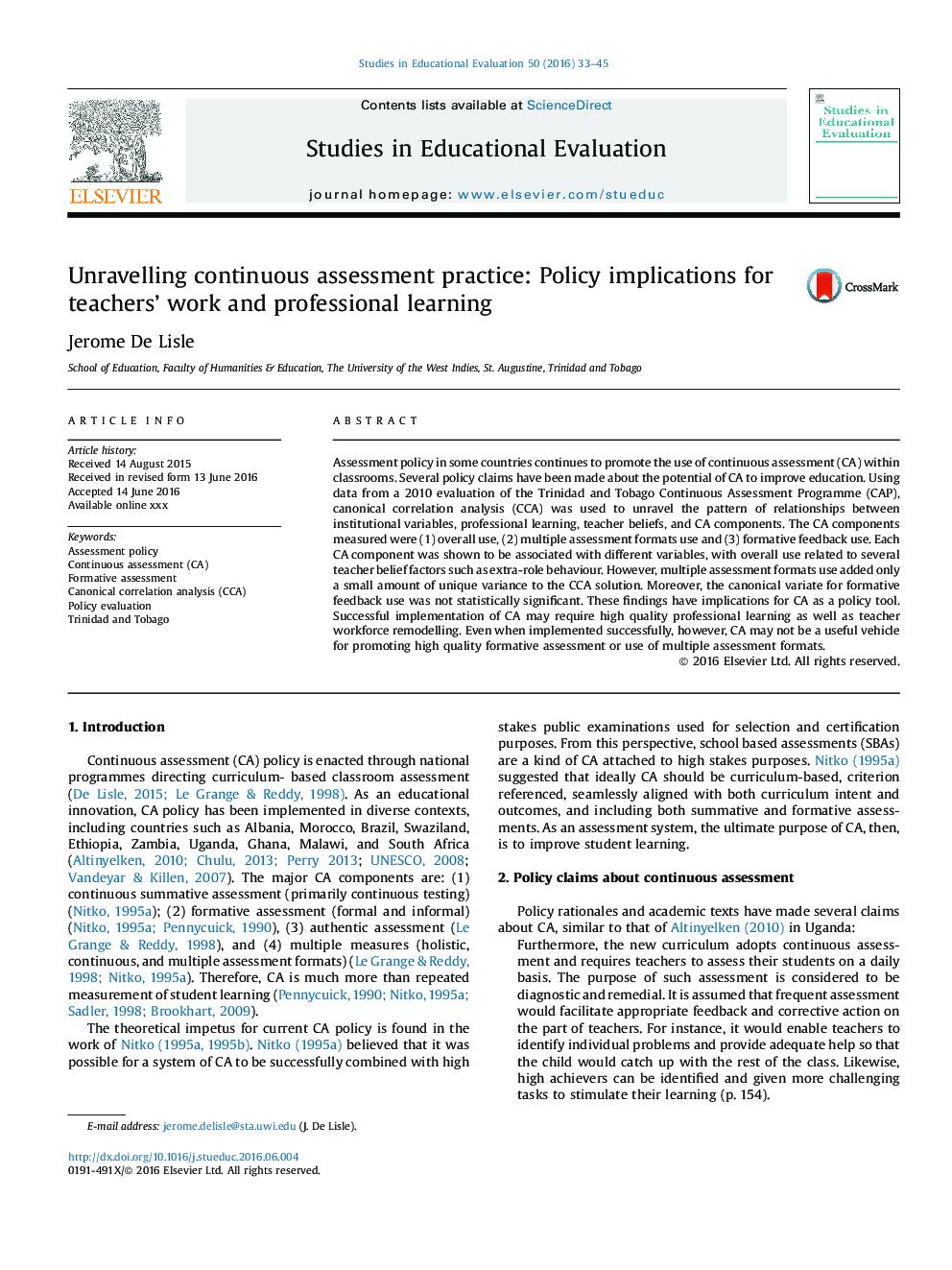| Article ID | Journal | Published Year | Pages | File Type |
|---|---|---|---|---|
| 6849148 | Studies in Educational Evaluation | 2016 | 13 Pages |
Abstract
Assessment policy in some countries continues to promote the use of continuous assessment (CA) within classrooms. Several policy claims have been made about the potential of CA to improve education. Using data from a 2010 evaluation of the Trinidad and Tobago Continuous Assessment Programme (CAP), canonical correlation analysis (CCA) was used to unravel the pattern of relationships between institutional variables, professional learning, teacher beliefs, and CA components. The CA components measured were (1) overall use, (2) multiple assessment formats use and (3) formative feedback use. Each CA component was shown to be associated with different variables, with overall use related to several teacher belief factors such as extra-role behaviour. However, multiple assessment formats use added only a small amount of unique variance to the CCA solution. Moreover, the canonical variate for formative feedback use was not statistically significant. These findings have implications for CA as a policy tool. Successful implementation of CA may require high quality professional learning as well as teacher workforce remodelling. Even when implemented successfully, however, CA may not be a useful vehicle for promoting high quality formative assessment or use of multiple assessment formats.
Keywords
Related Topics
Social Sciences and Humanities
Social Sciences
Education
Authors
Jerome De Lisle,
